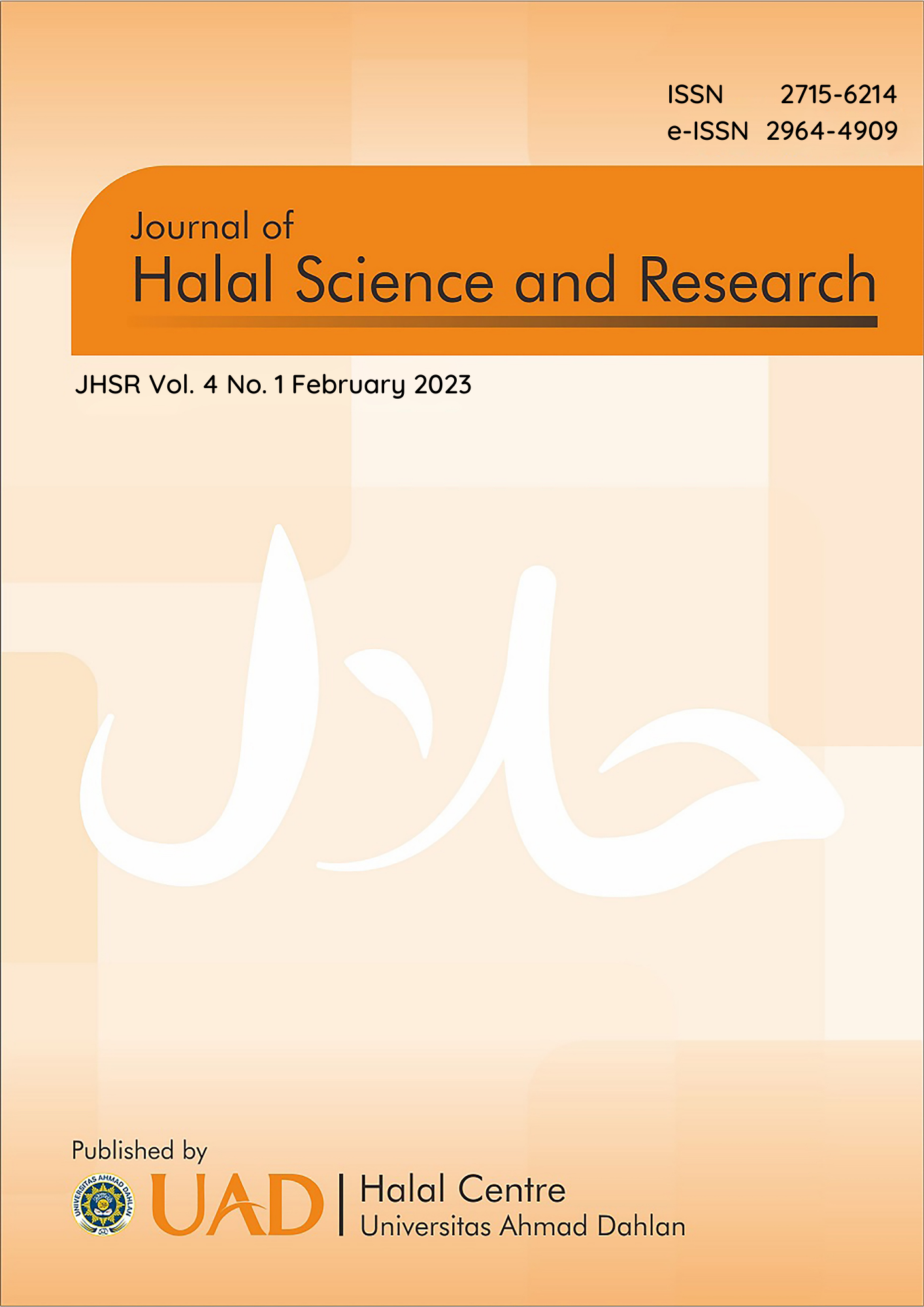Prospects of red passion fruit seeds (Passiflora edulis Sims.) as a source of halal probiotics
DOI:
https://doi.org/10.12928/jhsr.v4i1.7004Abstract
Indonesia is the most biodiversity country in the world, with a majority Muslim population, so halal issues are a priority. Natural resources are abundant, especially the tropical fruit that Allah SWT bestowed with a wide variety. Red Passion fruit (Passiflora edulis Sims.) is one of the tropical fruits widely consumed because of its delicious taste, rich in vitamins, minerals, and other active ingredients. The research reported that probiotics of Bacillus spp. Isolated from the red passion fruit seeds was proven to inhibit pathogenic microbes. Extended Strain Beta-Lactamase and Methicillin Resistant Staphylococcus aureus. The isolates also showed the ability to increase gamma interferon levels in the peripheral blood mononuclear cells in adult TB patients. Halal critical points for products containing probiotics can derive from raw material sources, especially those from animals. The Red passion fruit is classified as a safe, halal category. The process of isolating probiotics from red passion fruit seeds using fermentation technology in De man Rogose Sharp media, using simple materials, tools, and steps that are guaranteed to be halal. The compatibility of two probiotic isolates is the potential to be developed into a probiotic consortium for health supplement preparations and therapeutic complements.
Downloads
Published
Issue
Section
License
Copyright (c) 2023 Universitas Ahmad Dahlan

This work is licensed under a Creative Commons Attribution-NonCommercial-ShareAlike 4.0 International License.
Authors who publish with JHSR (Journal of Halal Science and Research) agree to the following terms:
1. Authors retain the copyright and grant Universitas Ahmad Dahlan right of first publication with the work simultaneously licensed under a Creative Commons Attribution-NonCommercial-ShareAlike 4.0 License (CC BY-NC-SA 4.0) that allows others to share (copy and redistribute the material in any medium or format) and adapt (remix, transform, and build upon the material) the work for any purpose, even commercially with an acknowledgement of the work's authorship and initial publication in Universitas Ahmad Dahlan.
2. Authors are able to enter into separate, additional contractual arrangements for the non-exclusive distribution of the journal's published version of the work (e.g., post it to an institutional repository or publish it in a book), with an acknowledgement of its initial publication in Universitas Ahmad Dahlan.
3. Authors are permitted and encouraged to post their work online (e.g., in institutional repositories or on their website) prior to and during the submission process, as it can lead to productive exchanges, as well as earlier and greater citation of published work (See The Effect of Open Access).

This work is licensed under a Creative Commons Attribution-NonCommercial-ShareAlike 4.0 International License.




